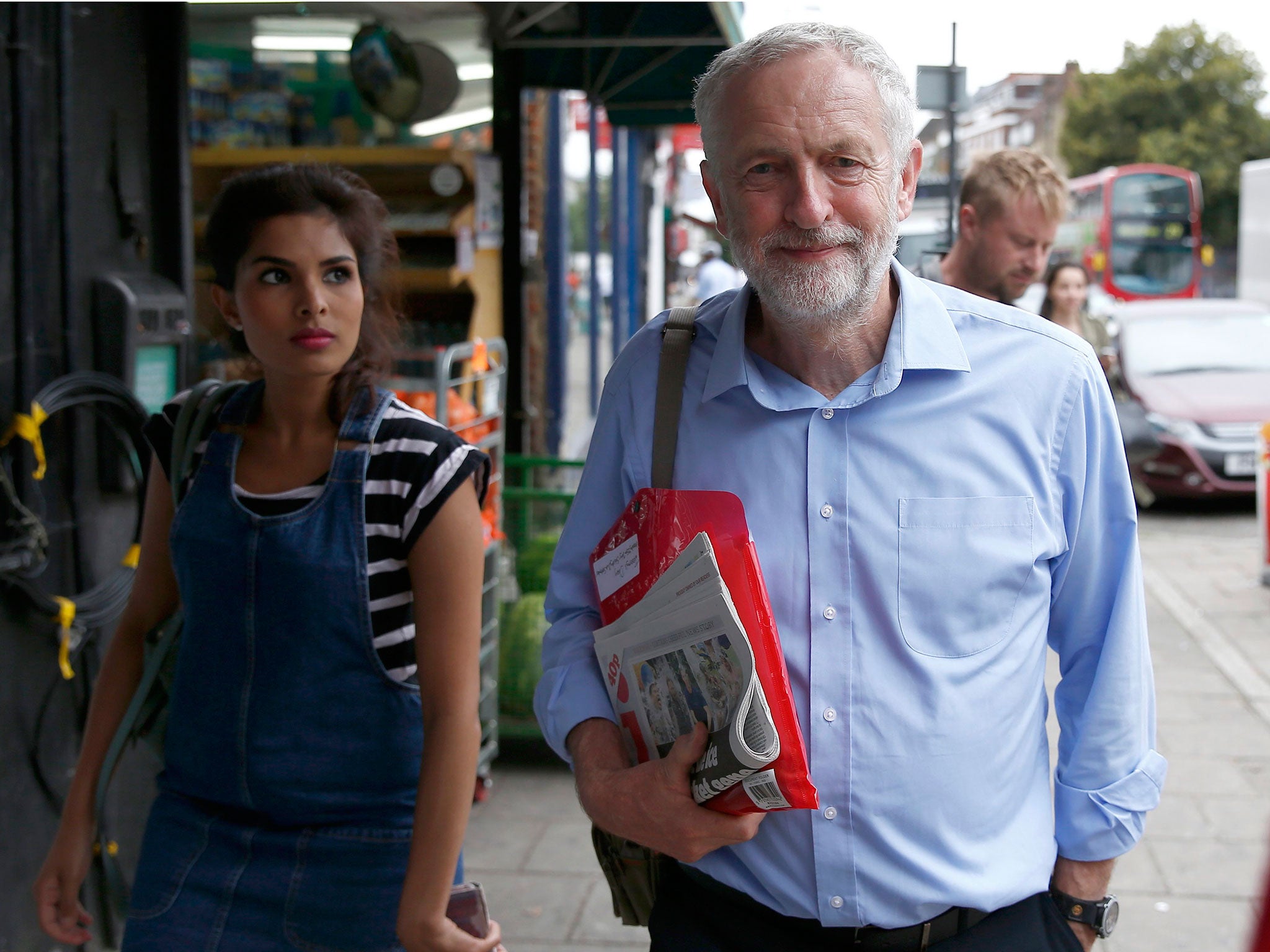Jeremy Corbyn's problem is that he's more Blairite than Blair
Both Blair and Corbyn fell into the trap of keeping unnecessarily famous spokespeople – but the difference between Alastair Campbell and Seumas Milne is that Campbell was actually good at his job

In Corbyn-land, Blair is a byword for Satan. “Blairite vermin” is the term of choice for all dissenters, and the aim at all time is to be everything Blair’s Labour was not. Politically, of course, the Corbyn Project and Blair’s New Labour are at almost polar opposites. In their style and approach, though, Corbyn and Blair have more in common than either might like to admit.
Blair’s “den” has become a part of the furniture in British political history. The “call me Tony” attitude with which he supposedly opened his first cabinet meeting is undoubtedly part of what won him three consecutive general elections, but was also a huge failing. Cabinet meetings were treated almost as afterthought consultations, the twice-weekly tradition of PMQs was honed down to a less rigorous once-weekly stint, and gatherings of a very few key figures on the sofas in Number 10 – Blair, Brown, Mandelson, and Campbell, say – were the cornerstones of day-to-day governmental practice.
Corbyn has followed much the same exclusionary template. As Richard Murphy, a former Corbyn advisor and keystone of the Corbyn project said, “Shadow ministers appeared to have been left with no direction as to what to do. It was shambolic.”
The fact that Heidi Alexander, formerly shadow health secretary and one of the Opposition’s few heavyweights in her tussles with Jeremy Hunt, was forced to stage a physical sit-in outside Corbyn’s office to extract a decision from him on Labour party policy is symptomatic of Corbyn’s disastrous style.
As one committed New Labour analyst said at the time, Blair "almost seemed to despise collective decision-making. He had been used to working with a small group of like-minded cronies”. To paraphrase Theresa May, remind you of anybody?
Other comparisons abound –McDonnell and Brown, the threatening attack dogs at the leader’s side with one eye on having the crown for themselves, is an obvious one. But it is that of Alastair Campbell, Blair’s infamous beleaguered spin doctor, and Seumas Milne, Corbyn’s infamous beleaguered spin doctor, that reveals a telling faultline in the Corbyn project.
Alastair Campbell did, obviously, fall into the classic spokesperson’s trap. “When the spokesman needs a spokesman, it’s time to go,” was how Andy Coulson put it in 2011, but the fine art of unnecessarily famous spokespeople was brought to life by Campbell. Whether it was the accusations of the Dodgy Dossier, the unfolding psychodrama as interpersonal relations with Brown and Blair became stretched, or the eventual, and unfortunate, slide into depression, Campbell cropped up in media coverage more often than was appropriate.
So it is with Milne. His Guardian columns have come back to bite him, with their bizarre headline claims that “there can be no Middle East settlement without Hamas”, an organisation whose founding documents endorse jihadi action, or that “terror is the price of support for despots and dictators”, unless that dictator be Saddam Hussein in which case just let him be. At the Truth & Reconciliation Shadow Cabinet meeting after the so-called coup to unseat Corbyn, Milne’s shadowy presence over Corbyn’s shoulder as Sky News cameras watched – “I don’t think this is a good idea, Seumas” – teetered on the edge of sheer farce.
The key difference between Campbell and Milne, of course, is that Campbell was actually good at his job. He got the big beasts of the press onside, contained the spread of bad coverage effectively, and knew exactly how best to package up each speech or policy announcement to make the most positive impact on newspaper readers, aka voters. A passing glance at any publication (other than the Canary) over the past nine months would have you wondering if Corbyn even had any kind of media team, let alone one whose boss is paid almost £100,000 a year.
Of course, to even put the words “Tony Blair” and “foreign policy” in the same sentence is to incite a reaction somewhere on the scale of a lengthy eye-roll to a riot.
But let’s remember Corbyn’s not-so-cuddly foreign policy faux pas: he appeared multiple times on a show for Press TV, the Iranian state propaganda network whose director is appointed by Iran’s Supreme Leader, even after the channel was banned in the UK for taking part in filming the detention and torture of an Iranian journalist.
This is a state that punishes consensual homosexual activity with 74 lashes of the whip if you’re lucky, and public hanging if you’re not. Kinder, gentler politics, right?
Project Corbyn relies on lazy slandering of everything Blairism stood for. But Blair’s failings were contained for almost a decade before the system came crumbling down with interior revolt – after, as should always be pointed out, three general election victories, the introduction of the minimum wage, NHS spending increases, tax credit introductions, equal rights legislation for women and LGBT people, devolution, and countless other monumental steps forward.
Corbyn’s tenure has been a disaster by so many measures, and he hasn’t even been in power yet. A ministerial walkout (shadow or otherwise) the likes of which hasn’t been seen for generations. A poll-lead for the Tories we haven’t seen since the Eighties and that would amount to a 1997-style majority for Theresa May. No formidable opposition – in Parliament or in the country – to a government determined to colonise the centre ground and obliterate Labour for a generation.
Blair’s Blairism, for all its failings, got things done. Corbyn and McDonnell have followed the disastrous managerial blueprint of Blair and Brown to the letter – only it’s alienated, excluded, and divided those who desperately want to spend their time providing a formidable opposition to Theresa May’s government.


Join our commenting forum
Join thought-provoking conversations, follow other Independent readers and see their replies